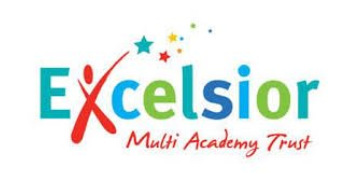A leaders’ union has said Labour’s Ofsted report cards should be “based on a new, slim set of statutory standards” which schools could either exceed, meet or fall short of.
Schools not meeting all the standards should be supported to do so by their trust or local authority, in most cases, as part of a “nuanced and supportive approach” to intervention, the ASCL union argues in a paper published today.
The paper explores the pros and cons of existing “report card-like models”, including the DfE’s trust quality descriptions, the Confederation of School Trusts’ ‘building strong trusts’ assurance framework and the Independent Schools Inspectorate framework.
It sets out key principles to underpin the new system, such as that standards should encourage “collaboration rather than competition” between schools.
Labour is expected to win the election next week and has pledged to scrap single-phrase Ofsted judgements and replace them with a report card system.
The key principles
ASCL argues report cards could lead to a more “intelligent, nuanced and humane approach”, but also cause “many potential unintended consequences”.
Reform is made more challenging by the fact some schools are run by local authorities and others by trusts, with “very different approaches to control and delegation”. So, the model must be “flexible enough” to work for schools in different circumstances, it adds.
Government should consider allowing schools to include some of their own metrics as part of the new system, or to give a “broader view” of their strengths and weaknesses separately, ASCL proposes.
Report cards should also take into account local context and cohort characteristics,
“without lowering expectations for any pupils” and have a “strong focus on provision for pupils with SEND and those living with disadvantage”.
The latter could include standards around inclusive admissions, access to the curriculum and engagement with extracurricular provision.
How would interventions work?
Lower Ofsted grades often act as a trigger for government intervention, such as local-authority schools rated ‘inadequate’ being required by law to academise.
But ASCL claims schools could be held to account more effectively against a statutory set of standards, compared to the current overall judgments approach.
There should be a clear distinction between schools that meet or fall short of the standards, with a “nuanced, effective and supportive approach to intervention for the latter”, it adds.
Schools meeting standards should be trusted to identify and implement their own approach to ongoing improvement, working with their oversight bodies, ASCL states.
But interventions, such as academisation or joining another trust, may still be needed in cases where a council, MAT or diocese is not giving a school enough support to improve, it adds.
Ofsted’s role should simply be to assess whether a school meets the statutory standards and schools should be judged “solely” against these benchmarks, ASCL said.
Separate regulation and improvement
The union insists regulation and school improvement are different and should be treated accordingly.
Inspection is the most effective way of assessing whether a school has met some standards, but others could be looked at through financial or safeguarding audits, it suggests.
ASCL calls for a model where there would be an ongoing requirement for some form
of regional evaluation of the capacity to improve of schools not meeting the standards.
It suggests this could be an “evolution” of the current DfE Regional Director role.
Paper is not formal ASCL policy
Labour had pledged to introduce a network of regional improvement teams if in government.
ASCL proposes they could be tasked with working alongside schools and trusts
to build a strong network of support and professional development in a local area.
They could also connect schools with “complementary strengths and weaknesses to encourage genuine school-led support and development”, it adds.

The paper does not yet represent formal ASCL policy, but is an indication of its “current thinking”.
Julie McCulloch, director of policy at the ASCL, said: “As with any major policy change, the way in which this is implemented is crucial.
“It is imperative the profession and the new government work together to develop a strong, collaborative and more humane approach to school inspections.”















Your thoughts